Michigan Raccoon Removal
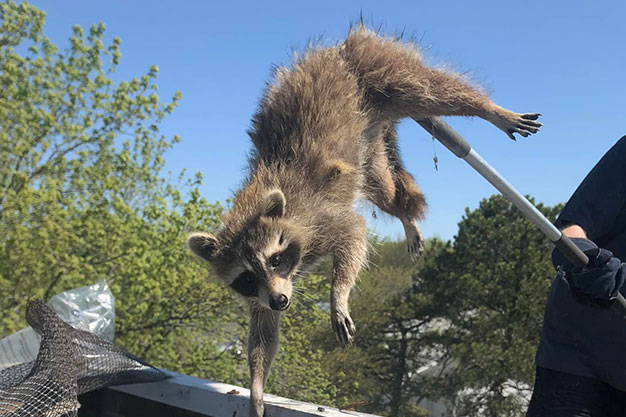
Raccoons may look harmless, but they can cause significant damage to homes and businesses in Michigan. If you’re dealing with raccoons in your attic, garage, or property, Michigan Bat Expert provides expert raccoon removal services that are safe, humane, and effective. Our team ensures your property is raccoon-free and protected from future invasions.
EXCELLENTTrustindex verifies that the original source of the review is Google. Fast and responsive!Trustindex verifies that the original source of the review is Google. We used Michigan Bat Expert for skunk removal. Britney was very helpful on the phone to give me options and schedule. The tech that arrived to pick up our pre-trapped skunk was very friendly and knew exactly what to do. We will be telling everyone in our subdivision about them! Great customer service, reasonably priced and you feel good knowing the little critters are being relocated to new land.Trustindex verifies that the original source of the review is Google. Excellent Service and very friendly staff Quick response Highly recommendTrustindex verifies that the original source of the review is Google. This is such a great service. I love the fact that the take the animals and release them instead of euthanizing them. The team is awesome and very professional. I try trapping myself but they know all the right things to do. I recommend Michigan bet expert to anyone that has a problem with raccoons they know their stuff?Trustindex verifies that the original source of the review is Google. Did a good job explaining options and issues. Completed work quickly and did a visual inspection with me. Explained their job garuatee. Easy to work with and were very efficient.Trustindex verifies that the original source of the review is Google. Professional and prompt. Answered all my questions and explained everything they did thoroughly.Trustindex verifies that the original source of the review is Google. Great service as always, and reasonable pricesTrustindex verifies that the original source of the review is Google. A great company I found them on google, great service. I will always have them do service for me as long as they’re in business.
Why Raccoons Are a Problem in Michigan:
Michigan’s diverse landscapes, from dense forests to suburban neighborhoods, provide an ideal habitat for raccoons. These nocturnal creatures are highly adaptable and often seek shelter in attics, crawl spaces, and chimneys.
Common Issues Caused by Raccoons:
Attic & Structural Damage: Raccoons can tear through insulation, ductwork, and wiring, creating serious fire hazards.
Health Risks: They carry diseases such as rabies, roundworm, and leptospirosis, posing risks to humans and pets.
Garbage & Property Damage: Raccoons frequently rummage through trash cans, scattering debris and making a mess.
Aggressive Behavior: If threatened, raccoons can become aggressive, posing a risk to homeowners and pets.
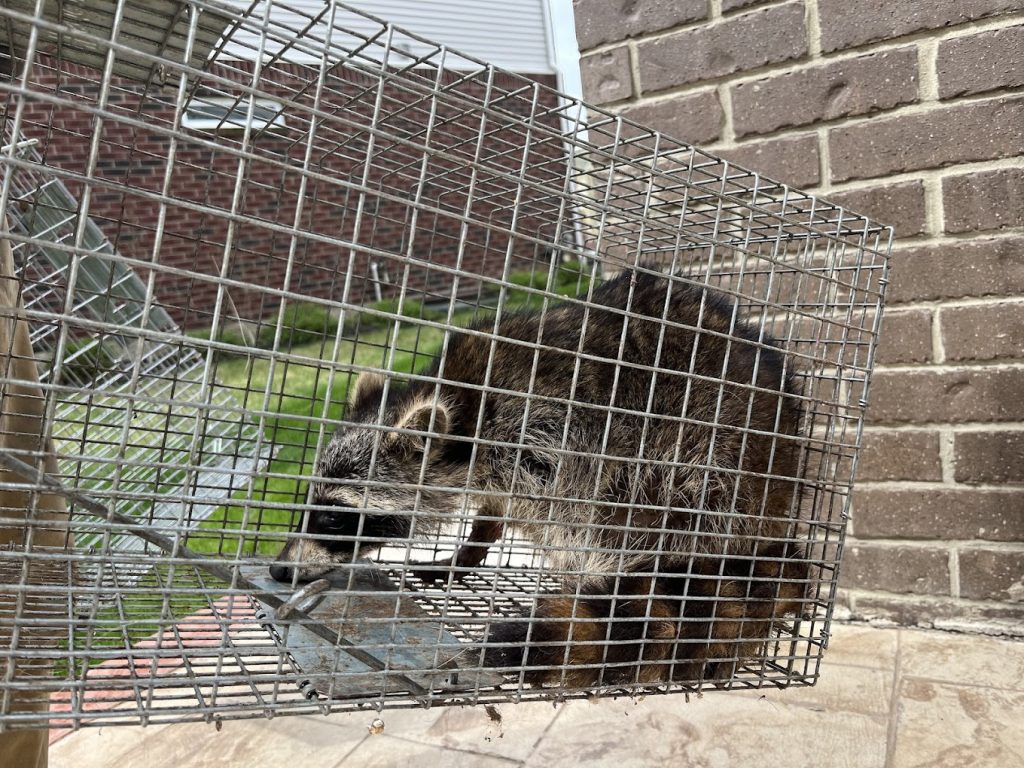
How to Identify a Raccoon Infestation:
You may have a raccoon problem if you notice:
Scratching, thumping, or chattering sounds in walls or ceilings at night.
Torn insulation or chewed wires in the attic.
Droppings or strong ammonia odors in crawl spaces or basements.
Knocked-over trash cans and disturbed garden areas.
If you suspect raccoons on your property, it’s crucial to act quickly before the damage escalates.
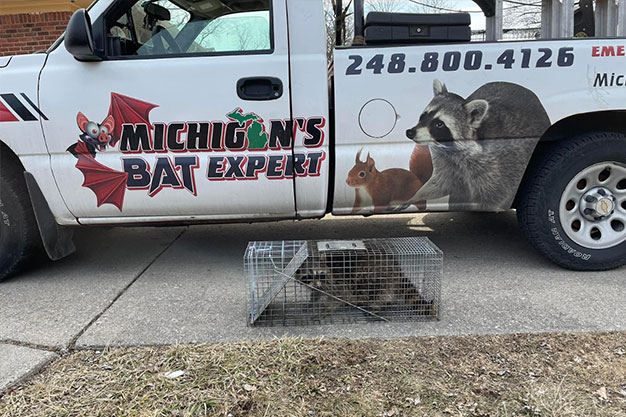
Raccoons are common all over Oakland County.
Our Professional Raccoon Removal Process
1. Inspection & Assessment
We begin with a thorough inspection of your property to identify active wildlife, entry points, and nesting sites.
2. Strategic & Humane Trapping
Our team sets up customized, humane traps in key locations to safely capture nuisance wildlife. We use baiting strategies that minimize stress to the animal.
3. Safe Relocation
Once captured, we transport the animal to a state-approved relocation area, ensuring they have access to food, water, and shelter away from urban environments.
4. Wildlife Exclusion & Prevention
To prevent re-entry, we seal entry points using durable materials and offer solutions like chimney caps, vent covers, and fencing.
5. Cleanup & Sanitation
Wildlife can leave behind urine, feces, and parasites that pose health risks. We offer professional sanitization and attic restoration services to remove contaminants.
Michigan’s Raccoon Population & Legal Considerations
Raccoons are protected under Michigan law, meaning removal must be done legally and ethically. As licensed wildlife specialists, we follow all DNR (Department of Natural Resources) regulations, ensuring compliance with Michigan’s wildlife protection laws.
Notable Raccoon Facts in Michigan:
Raccoons are found throughout Michigan, from rural farmlands to urban centers like Detroit, Grand Rapids, and Lansing.
They are highly intelligent, capable of solving complex problems to access food and shelter.
Raccoons are opportunistic feeders, consuming everything from small rodents to fruit and pet food.
Due to urban expansion, raccoons have become more dependent on human structures for nesting.
Call Michigan Bat Expert for Wildlife Trapping & Relocation
Dealing with a raccoon problem? Michigan Bat Expert is your trusted partner for raccoon removal, trapping, and exclusion services across Michigan. Our experienced team ensures humane, professional service to keep your property safe.
Call us at (248) 923-4762 to see how we can help.
Frequently Asked Questions on Raccoon Removal in Michigan
1. How do I know if I have a raccoon problem in my home?
Raccoons are nocturnal creatures, meaning they are most active at night. If you hear loud scratching, thumping, or chattering sounds coming from your attic, walls, or chimney, you may have a raccoon infestation. Other signs include visible damage to soffits, vents, or roof shingles, as raccoons often tear these open to gain access. Droppings and urine stains in your attic or crawl space are another indicator. If you notice knocked-over trash cans, disturbed pet food, or raccoons frequently near your home, it’s best to contact a professional for an inspection.
2. Are raccoons dangerous to humans and pets?
Yes, raccoons pose several risks to both humans and pets. They are known carriers of rabies, leptospirosis, and raccoon roundworm, all of which can be transmitted through bites, scratches, or contact with contaminated droppings. Raccoons can also become aggressive when cornered, especially if they are protecting their young. If a raccoon is inside your home, it is important not to approach it and instead call a licensed wildlife removal expert to safely handle the situation.
3. What attracts raccoons to homes in Michigan?
Raccoons are highly adaptable scavengers that seek food, shelter, and warmth. In urban and suburban areas of Michigan, they are often drawn to garbage cans, pet food left outside, bird feeders, and compost piles. Attics, chimneys, and crawl spaces provide ideal nesting sites, especially during colder months or breeding season. Raccoons are also attracted to homes with easy entry points, such as loose roof shingles, broken vents, or open chimneys. Properly securing food sources and sealing potential entry points can help deter raccoons from your property.
4. How do professionals remove raccoons from homes?
Professional raccoon removal involves humane and strategic methods to safely capture and exclude the animals. The process typically starts with a thorough inspection to identify entry points and nesting areas. Experts then use one-way exclusion doors, which allow raccoons to exit but prevent them from returning. In some cases, live trapping may be necessary if raccoons are stuck inside a building. After removal, professionals will seal all entry points with durable materials like metal flashing or heavy-duty mesh to prevent re-entry. Some services also include attic cleanup and sanitation to remove hazardous raccoon droppings.
5. Is it legal to trap and relocate raccoons in Michigan?
Yes, but Michigan has strict laws regarding raccoon removal. According to the Michigan Department of Natural Resources (DNR), property owners or licensed professionals can legally trap raccoons. However, relocating raccoons beyond a one-mile radius is prohibited due to the risk of spreading diseases such as rabies. Additionally, raccoons cannot be released on public land without permission. Because of these legal restrictions, it is best to hire a licensed wildlife removal expert who understands the regulations and can handle raccoons safely and ethically.
6. How can I prevent raccoons from coming back?
To keep raccoons away from your home, focus on eliminating attractants and securing potential entry points. Store garbage in metal or raccoon-proof trash cans with tight-fitting lids. Bring pet food indoors at night and remove bird feeders if raccoons are a persistent problem. Inspect your home for gaps, broken vents, or loose shingles, and seal any potential entry points with steel mesh or heavy-duty materials. Installing chimney caps and vent covers can also prevent raccoons from entering. Routine inspections, especially before winter and breeding season, can help keep your home raccoon-free.
7. When are raccoons most active in Michigan?
Raccoons are active year-round in Michigan, but their behavior varies by season. Spring (March-May) marks the start of their breeding season, and pregnant females often seek out attics or chimneys as safe nesting sites. In summer and fall (June-October), young raccoons begin exploring and foraging for food, leading to more human encounters. During winter (November-February), raccoons do not hibernate but may enter a state of torpor, reducing their activity during extremely cold periods. If raccoons are active on your property, it is best to address the issue before they establish a permanent den.
8. How much does raccoon removal cost in Michigan?
The cost of professional raccoon removal depends on the severity of the infestation, the number of raccoons, and the amount of damage repair needed. On average, raccoon removal services in Michigan range from $300 to $1,000. If extensive exclusion work, attic restoration, or biohazard cleanup is required, costs may be higher. Many wildlife control companies offer free or low-cost inspections to assess the situation and provide an accurate quote. Hiring a licensed and experienced wildlife removal specialist ensures safe, legal, and effective raccoon control.
Our Services
Attic Restoration
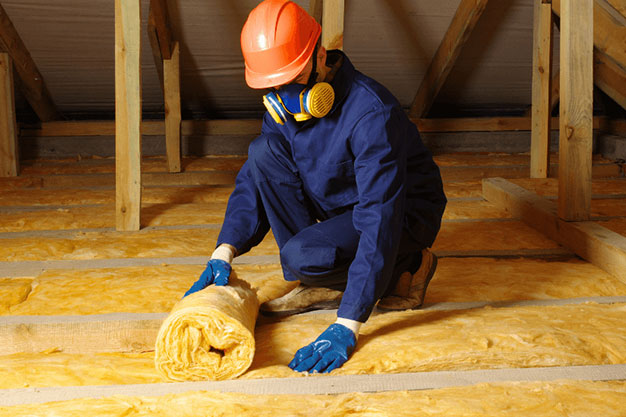
Live Bat Exclusion
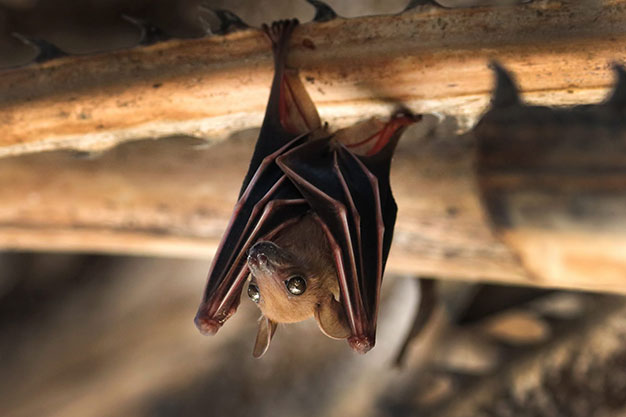
Spot Cleaning
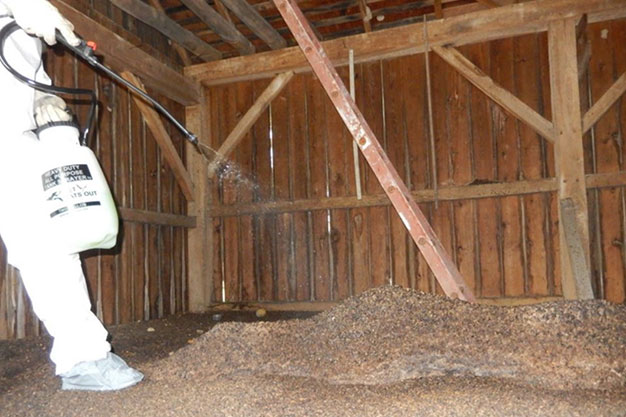
Wildlife Relocation

Mice Exclusion & Prevention
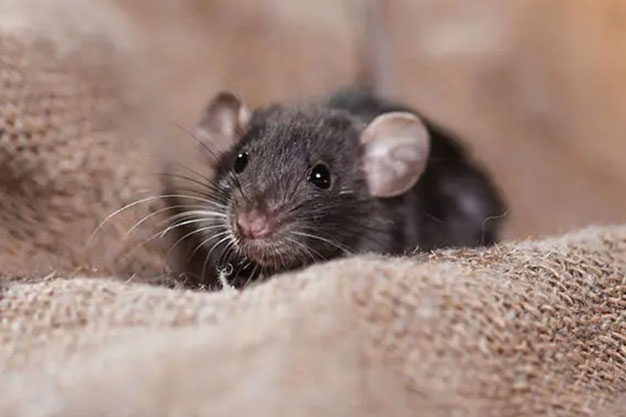
Snake Removal
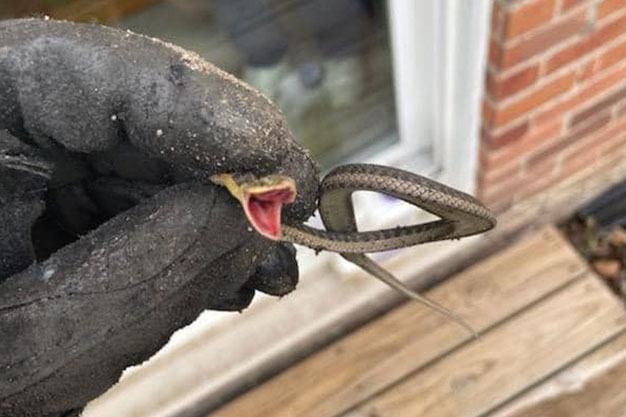
Dead Animal Removal
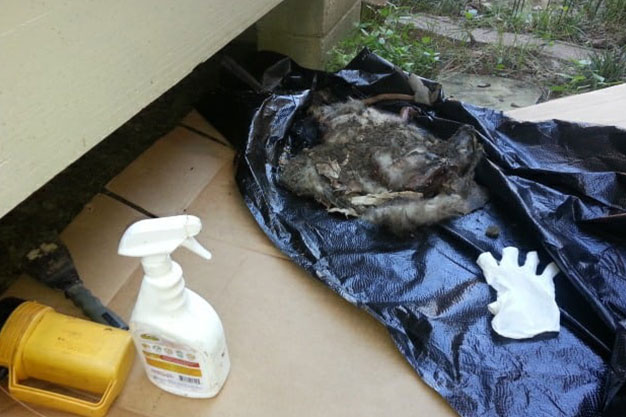
Trapping Strategy
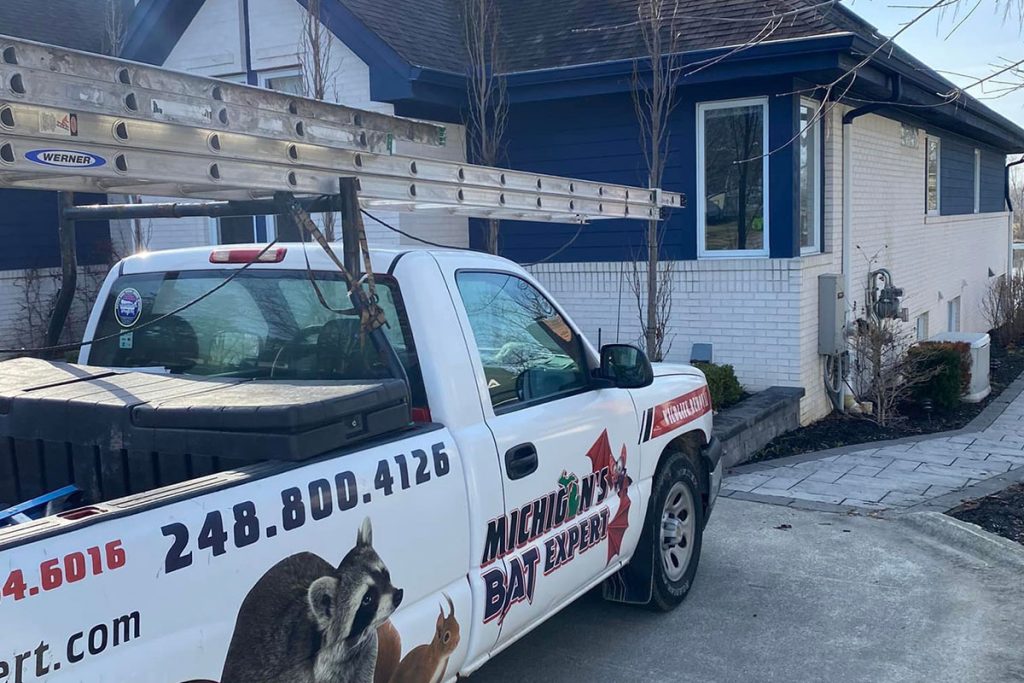
Common Wildlife We Trap & Relocate:
Michigan is home to a variety of wildlife species that can cause property damage or pose health risks. Our team safely removes:
Raccoons – Known for getting into attics, garages, and chimneys.
Squirrels – Often invade attics and walls, causing structural damage.
Skunks – Can burrow under homes and create strong odors.
Opossums – Frequently found under decks or sheds.
Groundhogs – Known for burrowing and causing damage to foundations.
Bats – It’s in our name. Bats are often found in attics and other warm places.
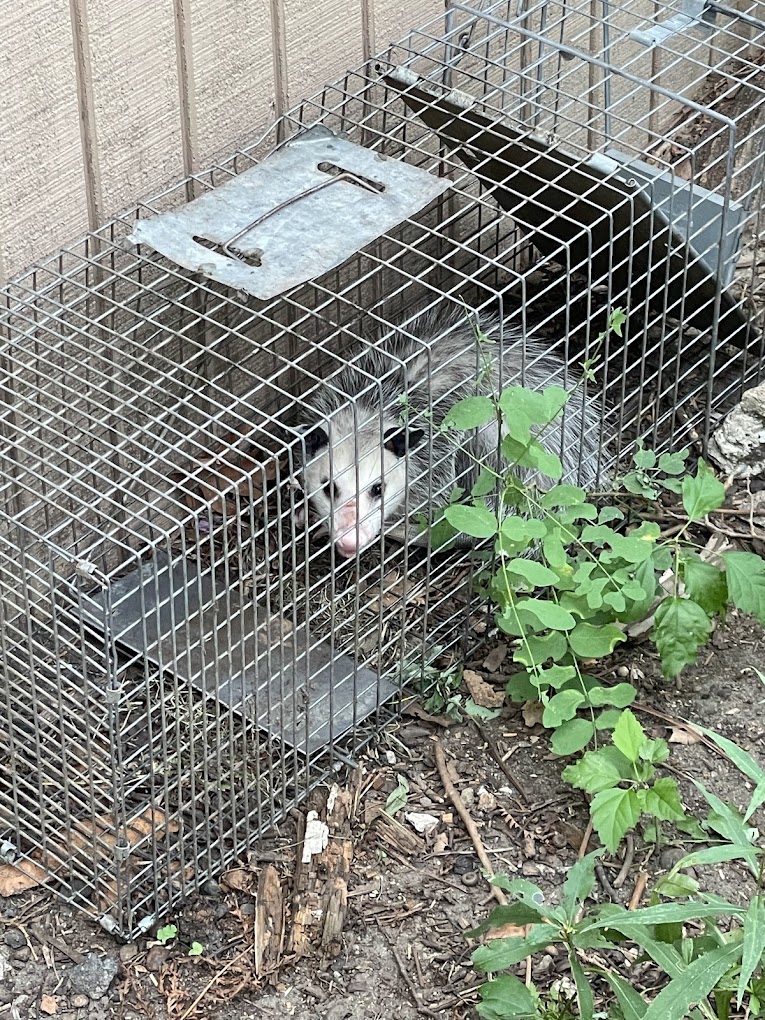
Opossums are common all over Oakland County.
Just Some of Our Local Service Areas in Michigan:

Sam Sullivan
Sam Sullivan is the owner and lead expert at Michigan’s Bat Expert, specializing in humane bat removal and exclusion services based in Oakland County, Michigan. With years of hands-on experience in wildlife control, Sam has helped countless homeowners and businesses protect their properties from bat and wildlife infestations while adhering to Michigan’s strict wildlife laws.
His expertise lies in exclusion and prevention, ensuring that bats and wildlife are removed safely and never return. Sam is dedicated to ethical and effective solutions, using proven methods that prioritize both property protection and wildlife conservation. His commitment to excellence has made Michigan’s Bat Expert a trusted name in the industry.


